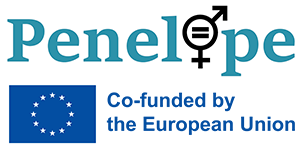

Could you please introduce yourself?
In 1998 I began my professional life as an independent lawyer, evolving progressively towards alternative conflict management. I was founder of XILEMA, a social entity, where I worked as a family mediator in a social service, member of the Board and CFO. Since September 2009, I have supported the regional government on Smart Specialization Strategies and Cluster Policy, having participated in three regional innovation strategies and the creation of 8 cluster organisations. Since 2015 I serve as Regional Strategy Director in SODENA, the development agency of Navarra.
I hold a bachelor’s degree of Law (University of Navarra), and have Postgraduate studies in Legal Practice, Family Mediation, Financial Management, Cluster Policy, and Strategic Innovation.
Could you describe your organisation in a few words?
SODENA, is the development agency of Navarra and its mission is to be the instrument of the Government of Navarra to attract and develop value-added business projects, contributing to regional development and the creation of quality employment, working in:
Coordinating the design and implementation of the Smart Specialization Strategy (S3) that promotes regional economic transformation and development.
- Capturing, identifying and promoting the generation and development of business projects for Navarre, both locally and externally, through the use of financial tools, mainly venture capital, and facilitating the introduction of foreign investment in the region, offering at the same time advice and support.
- Boosting business competitiveness by providing value, fostering collaboration and business growth.
Could you give us some facts and figures, or a description of the status-quo related to the situation of gender equality in your region? What are the challenges encountered?
Navarra is the third region in Spain with a higher wage gap, 22,37%, due mainly to the industrial structure of our economy and the consequences of unequal distribution of caring responsibilities. Here you have the facts: only 24% of managers are women. Women account for only 27% of jobs in (better paying) manufacturing sectors, and 10% of the manufacture and construction workforce. The sectors where less qualified women usually work are the worst paid (food chain, care sectors). Due to family care, women have more temporary contracts (57%) and part-time jobs (x4). 90,55% of unpaid leaves to care for children were taken by women.
What levers do you see possible to address these challenges or to improve the situation you just described? Where do you see clusters playing a role in the process?
Cluster organisations are key in the innovation ecosystem to bring a market-oriented view, gathering mainly private companies around the challenges that they encounter to grow and create more added value. Clusters are innovation drivers that help companies, especially SMEs, to understand and adapt to the rapidly changing world in which they operate and to test and learn rapidly, cheap, and cooperatively possible solutions. Having a diverse and balanced workforce is key for companies to understand their customers’ needs, which are constantly evolving. Companies can learn how to improve with the diffusion of best practices, technical assessment, and pilot projects, always from a business perspective which in my opinion is highly needed. It simply pays off.
Do companies in your region face recruitment difficulties? Would you say that efforts to create a (more) gender equal environment lead to solutions to overcome these difficulties and why?
Yes, absolutely. When talking to business managers, talent shortage is said to be the main bottleneck for companies. Especially in STEM positions, where Navarra has outstanding, highly sophisticated companies in the sectors of automotive, food, renewable energies, mechatronics, machinery, and equipment. But paradoxically, we observe not only a stagnation but even a regression in the women’s share of STEM students, even when physical strength is no longer needed in many activities. On top of that, creativity and soft skills are scaling among the most wanted capacities. Finally, many managers reported that women are better performing at detail-oriented repetitive jobs, consistent with multinational companies’ Zero Defect Manufacturing requirements.
Do you think that companies in your region are aware of gender equality rules? Do they know how to comply with these rules? What would be helpful for them?
Compliance is but a last resource and not the most desirable driver of change. We should encourage the managers to see the competitive and innovative contribution of women in our companies. In a survey conducted by the Chamber of Commerce, 85% of companies acknowledged their obligations, but only 65% had an equality plan. Nevertheless, the facts we’ve seen say plans and rules are not enough. Neither are support measures. Navarra has plenty of resources to favor compliance: public grants, free technical assistance, raising awareness activities, prizes, tailor-made roadmaps… What’s missing? Trying. We long for companies to experiment with the benefits of a more diverse and complementary workforce. Our main anthem should be “from obligation to commitment”.
Would you say working on gender mainstreaming can bring solutions to other challenges you observe (retaining female human resources in organisations by addressing issues such as equality in wages, work-life balance, fight against sexist acts, populating rural areas, etc.)?
All of them are positive externalities, but the first one should be the desire of personal fulfillment and fairness to all people. It has been proved that in rural areas of Navarra population remains living in the villages when women find local jobs, so they are key to the territorial cohesion challenge. But also internally, gender mainstreaming in a company can create a culture of respect, helping integrate more varied profiles (men of course included) in a richer and more humane organization, building a greater sense of belonging. This can boost creativity and commitment at all levels, which in (more than ever) complex and uncertain environment can really make the difference.
Could you please describe why gender equality is important for you personally?
Personally, it is my recognition to some women who helped me with their trust and example to develop my own capacities and self-confidence. Secondly, I feel this as a matter of justice, and I have the sense that we are so late on this… Finally, I believe a more diverse vision, holistic and integrated, can make the members of a team feel better, and thus perform better.
As a man with responsibility, why is it important to support women in the workplace? What is your (male) perspective on the issue of gender equality mainstreaming?
Over the years I have changed my understanding and attitude on this topic after realizing the benefits of a more diverse team. As men, I think we can learn new ways of managing, and sometimes we lack the ability to connect better with the people we work with. The focus should be not only on the job to do, you know, tasks, and rules, and deadlines, but on the people that are to do the job. We can learn a lot about this from women.
What would be your closing word? Your main message on advancing gender equality approaches in companies/clusters/public authorities/governments?
Just try it!


